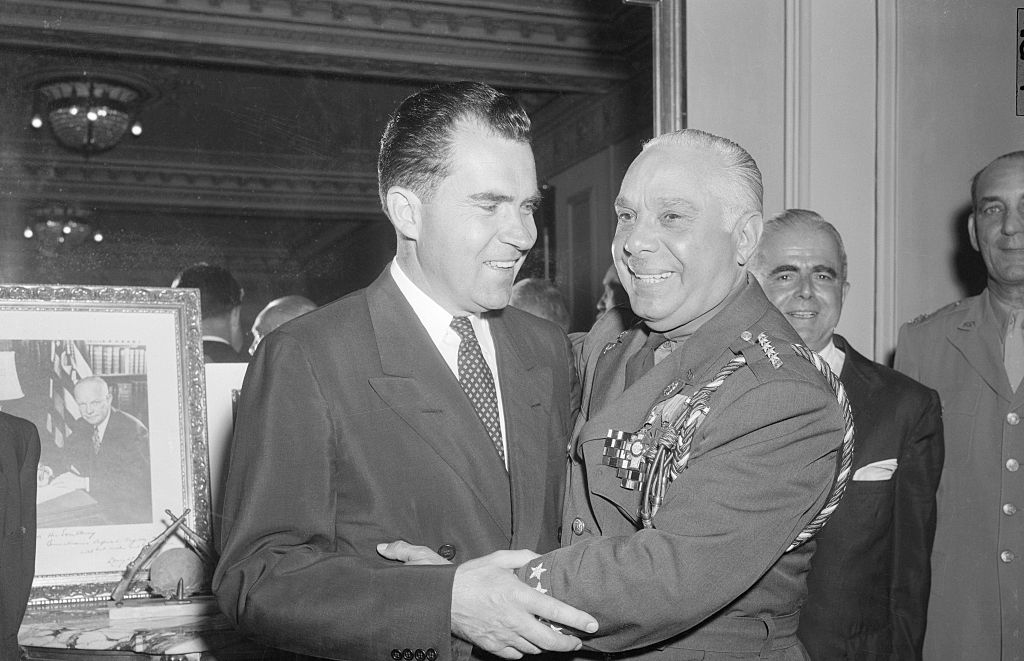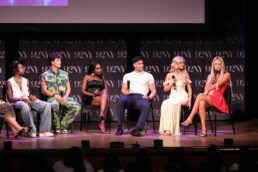The Call Is Coming From Inside the Villa
Love Island: USA has Latine viewers confronting their anti-Black history
By Julianne Escobedo Shepherd
Love Island is the escapist watch of the summer with its outsized personalities and tropical setting—but as the aftermath of this season has proven, it’s never truly an escape from the dynamics of the real world.
A little background if you’re not one of the tens (hundreds?) of millions that made this season Peacock’s biggest streaming series ever: Love Island is a reality show in which a dozen “sexy singles” are sequestered inside a neon villa with the sole directive to find love amongst themselves, has been airing for a decade in the UK, and six years in the U.S., but it didn’t really take off here until last year, thanks to improved production values after a switch from CBS to Peacock. This summer, it was an inescapable hit: Love Island seemed like the only thing unifying the country, to be honest, a fact I chalked up to our desperate collective need for an hour of reprieve from encroaching fascism. And since it airs almost every single day for two months, it’s easy to immerse oneself in the petty dramas and flirtations of its sculpted and spray-tanned twenty-something cast.
I’ve been watching Love Island for years—last summer I realized I had seen over 550 episodes, at which point I had to stop counting—and like the best reality shows, it manages to put larger-world concerns under a microscope; its anthropological utility is vast. Even in its unreal Fijian (or Mallorcan) setting, familiar biases and prejudices play out in real time. And this year especially, anti-Black racism has shown up both in the villa and among the show’s fanbase.
This year was notable for the way Olandria Carthen and Chelley Bissainthe, this season’s beloved Black women leads, were characterized by fans and certain tabloid media. They were both perfectly dignified and two of the main reasons the season was watchable—only to find that, having emerged from the villa at the end of the season, they’d been saddled with the “angry Black women” stereotype. (Production has also been accused of airing decontextualized outbursts by Huda Mustafa, Love Island’s first-ever Palestinian cast member and an outspoken mother, while editing out the male behavior that led to her outbursts.)
Further, two contestants, Yulissa Escobar and Cierra Ortega, were unceremoniously disappeared from the villa after old social media posts surfaced in which each used racist terms—the n-word and an anti-Asian slur, respectively. And last week, it emerged that previous contestants JaNa Craig and Kenny Rodriguez had broken up after a year—allegedly due to his racism against JaNa. (I’m using first names here since that’s the way viewers know the cast.) A post by friend and castmate Leah Kateb charged Kenny with being a “racist, clout/money hungry and a scammer,” while JaNa’s best friend, Charmane Smith, doubled down on the accusations, implying that Kenny had been texting friends about how he does not like Black women. Kenny has not yet responded to these specific allegations, but in aggregate, the headline-making racial dynamics that have surfaced are appalling.
And it was even more disconcerting that the three contestants accused of bias are all Latines of various origin, with a white Cuban from Miami (Yulissa), a Puerto Rican/Mexican Angeleno (Cierra), and a non-Black Dominican from Dallas (Kenny) at their center. As De Los’s Alex Zaragoza pointed out after Cierra’s ouster, “anti-Blackness and white supremacy is sadly part of the fabric of our culture across Latino communities in all parts of the U.S.”
Colorism and racism have long been a massive problem among our U.S. Latine communities, and in Latin America, too; it’s a pervasive issue that dates back to both the enslavement and genocide of Africans and the 15th-century Spanish invention of las Castas—the racial caste system put into place as the conquistadors colonized Indigenous lands. The idea that lighter-skinned people deserved higher social and economic standing was crucial for Spaniards in maintaining control, and it embedded itself into cultures across Latin America, with flare-ups along the way.
For instance, in the mid-century Dominican Republic, the dictator Rafael Trujillo used anti-Black and anti-Indigenous racism to foment division and entrench his fascist rule (sound familiar?), a legacy that reverberates today. And for too long, mainstream media in Latin America has spread the message that white is more right, whether in the faces that populate our novelas or those that deliver our newscasts. (Recall, for instance, the racism faced by the Mixtec and Triqui actor Yalitza Aripicio, after her Oscar nomination for the 2019 film Roma.) In the U.S., white assimilation demands that Latines shed our identities, which is how you get brown Latines going full stan for Trump, even as his administration kidnaps and sends our families to concentration camps.

Fortunately, young people seem much more inclined to call out and combat anti-Black racism, and racism in general, among Latines. They know that Latines’ fraught experience with colonialism doesn’t excuse us from the task of trying to eradicate this problem within our communities and our families; that if we are to be united towards liberation, eliminating anti-Blackness from within is an essential first step. And if it takes Love Island, a reality show defined by thong bikinis and nasty-looking egg breakfasts, to spark this conversation, then I suppose we can call it a net good. Even if you inadvertently lose half your summer watching it.
